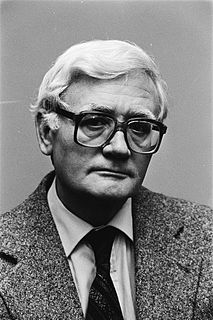A Quote by N. T. Wright
Certainly Paul shares the view of the Old Testament prophets that God will one day flood the world with justice and joy - and that this has begun to be fulfilled in the resurrection of Jesus.
Related Quotes
Made for spirituality, we wallow in introspection. Made for joy, we settle for pleasure. Made for justice, we clamor for vengeance. Made for relationship, we insist on our own way. Made for beauty, we are satisfied with sentiment. But new creation has already begun. The sun has begun to rise. Christians are called to leave behind, in the tomb of Jesus Christ, all that belongs to the brokenness and incompleteness of the present world ... That, quite simply, is what it means to be Christian: to follow Jesus Christ into the new world, God's new world, which he has thrown open before us.
It's not as if the New Testament writers came along and said, "The culmination of Old Testament books is more books, New Testament books." In some ways they thought instead of the culmination of Old Testament books being Christ himself, the word incarnate as the opening verses of Hebrews 1 put it. In the past God spoke to the fathers by the prophets, but in these last days he has spoken to us by his son and the son is revelation.
Many who are convinced that God is non-violent simply dismiss the Old Testament accounts of God commanding or engaging in violence. I don't consider this to be a viable option, for Jesus treats the whole Old Testament as the inspired Word of God. My cross-centered interpretation of these violent portraits allows believers to affirm that God is non-violent while also affirming that all Scripture is "God-breathed.".
The folly of Interpreters has been, to foretell times and things by this Prophecy, as if God designed to make them Prophets. By this rashness they have not only exposed themselves, but brought the Prophecy also into contempt.
The design of God was much otherwise. He gave this and the Prophecies of the Old Testament, not to gratify mens curiosities by enabling them to foreknow things, but that after they were fulfilled they might be interpreted by the event, and his own Providence, not the Interpreters, be then manifested thereby to the world.
God's kingdom is launched through Jesus and particularly through his death and resurrection; but, by the Spirit, this kingdom is not an escape from the present world but rather its transformation, already in the present (starting with Jesus' resurrection) and in the ultimate future (the new heaven and earth including our own resurrection).
Jesus on the cross feels the whole weight of the evil, and with the force of God's love he conquers it; he defeats it with his resurrection. This is the good that Jesus does for us on the throne of the cross. Christ's cross, embraced with love, never leads to sadness, but to joy, to the joy of having been saved and of doing a little of what he did on the day of his death.
In the Old Testament…God is the owner of the vineyard. Here He is the Keeper, the Farmer, the One who takes care of the vineyard. Jesus is the genuine Vine, and the Father takes care of Him…In the Old Testament it is prophesied that the Lord Jesus would grow up before Him as a tender plant and as a root out of the dry ground. Think how often the Father intervened to save Jesus from the devil who wished to slay Him. The Father is the One who cared for the Vine, and He will care for the branches, too.
If the resurrection of Jesus cannot be believed except by assenting to the fantastic descriptions included in the Gospels, then Christianity is doomed. For that view of resurrection is not believable, and if that is all there is, then Christianity, which depends upon the truth and authenticity of Jesus' resurrection, also is not believable.
The crucified but risen Jesus appears in the believing, assembled community of the church. That this sense of the risen, living Jesus has faded in many [churches] can be basically blamed on the fact that our churches are insufficiently 'communities' of God. Where the church of Jesus Christ lives, and lives a liberating life in the footsteps of Jesus, the resurrection faith undergoes no crisis. On the other hand, it is better not to believe in God than to believe in a God who minimizes human beings, holds them under and oppresses them, with a view to a better world to come.
For Paul 'righteousness' and 'justice' are the same word, as they were in Hebrew. Paul clearly believes that helping the poor is a central and ongoing part of Christian commitment, precisely because in Jesus Christ God has unveiled and launched his plan for the rescue, redemption and renewal of the whole creation. Justification and justice go very closely together.


































